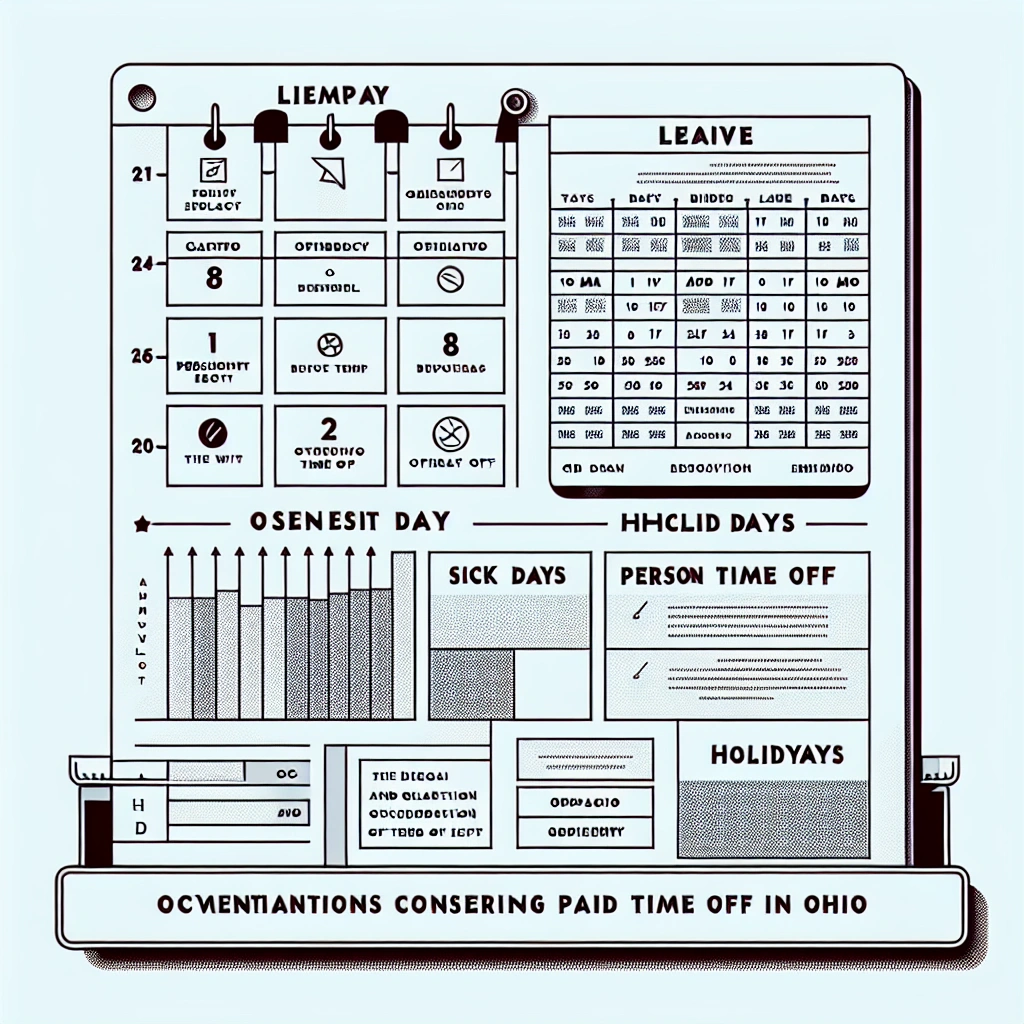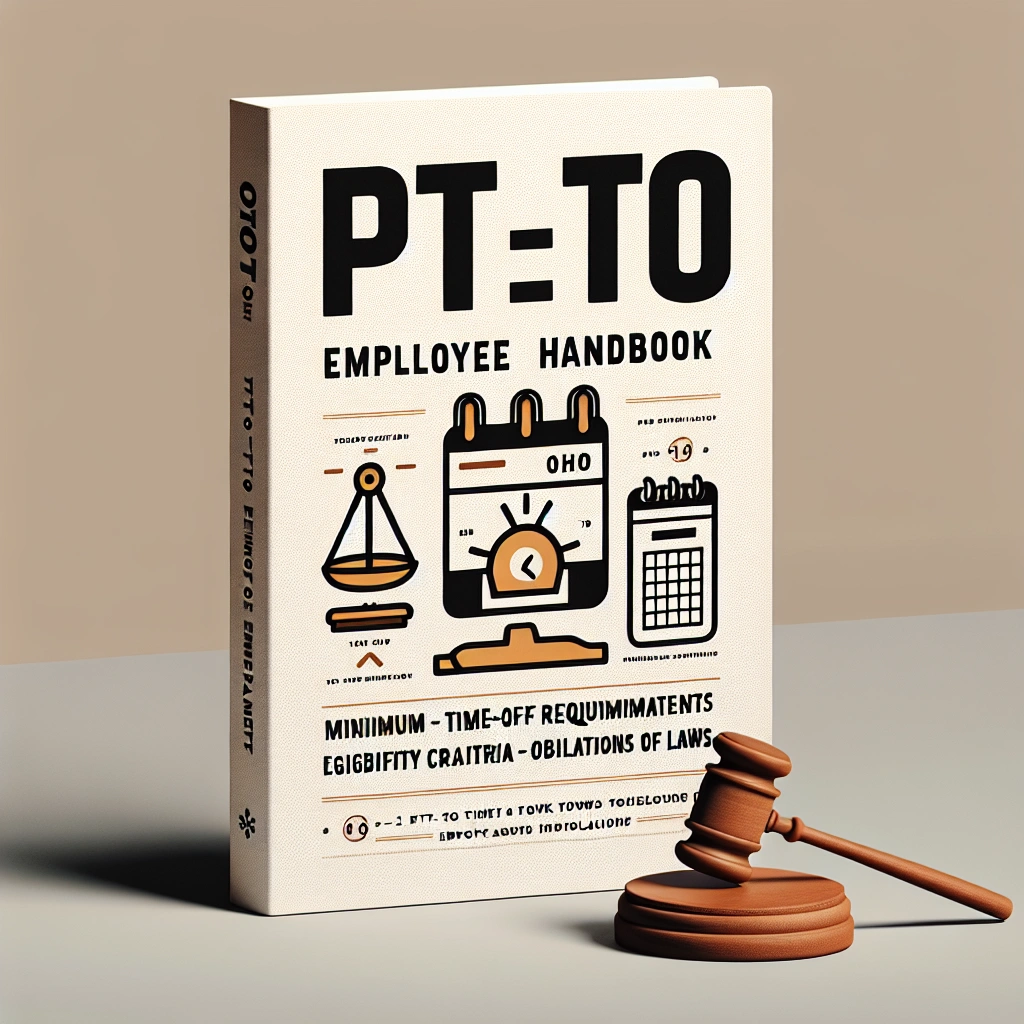Pto Laws In Ohio: Everything You Need To Know
Short Answer for “Are there PTO laws in Ohio?”
No, Ohio does not mandate private employers to provide paid time off (PTO) to their employees, but employers are required to grant leave without pay for various reasons.
Check out this Youtube video: If you want to understand the PTO laws in Ohio and how they relate to workers’ compensation, this video will provide clear and helpful information.
Key Takeaways
-
Ohio does not mandate private employers to provide paid time off (PTO) to their employees, but employers are required to grant leave without pay for various reasons.
-
Private employers in Ohio are not legally compelled to provide paid time off, but they are required to allow leave without pay for specific situations.
-
Employers in Ohio must clearly communicate their policies regarding paid time off, including accrual, eligibility criteria, and any restrictions or conditions on its usage.
-
Employees in Ohio do not inherently possess legal entitlements to vacation, bereavement, or sick leave, but have the right to receive them when voluntarily provided by employers.
-
Ohio employers are obliged to consider providing unpaid leave for specific purposes, as stipulated by federal and state laws.

Understanding PTO Laws in Ohio
| PTO Laws in Ohio |
|---|
| Definition |
| Different PTO Types |
| Effects on Employees |
| Effects on Employers |
Definition of PTO laws in Ohio
Ohio labor laws do not mandate private employers to provide paid time off (PTO) to their employees. However, Ohio employers are required to grant leave without pay for various reasons including medical, family, and military leave.
This extends to aspects like jury duty and election leave. While Ohio law does not enforce the provision of vacation, bereavement, or sick leave, employers are obligated to extend unpaid leave for specific purposes as per federal and state regulations.
Different types of PTO covered by Ohio laws
In Ohio, private employers are not legally compelled to provide paid time off to their employees, but they are required to allow leave without pay for specific situations covered under federal and state law. Notably, leave without pay is mandatory for reasons such as medical, family, military, jury duty, and election leave.
Additionally, while Ohio law does not mandate paid vacation, bereavement, or sick leave, employers are obliged to consider providing unpaid leave for specific purposes, as is stipulated by federal and state laws.
How PTO laws in Ohio affect employees and employers
The absence of mandated PTO laws in Ohio impacts employees in that they do not have a legal entitlement to paid time off for vacation, illness, or bereavement. However, employers are obligated to allow leave without pay for various reasons, which can affect employees both positively and negatively, depending on the circumstances.
With no legal requirement for PTO in Ohio, the onus is on employers to decide whether to provide paid time off, which can influence the employer-employee relationship and workplace satisfaction.

How to Navigate PTO Laws in Ohio
Understanding employer obligations
In Ohio, while private employers are not legally obligated to provide vacation, bereavement, or sick leave to their employees, those who choose to offer such benefits must adhere to the rules outlined in their established policies or employment contracts. It is crucial for employers to clearly communicate their policies regarding paid time off, including accrual, eligibility criteria, and any restrictions or conditions on its usage.
Additionally, employers should ensure compliance with the federal Family and Medical Leave Act (FMLA) if applicable, which may entitle eligible employees to up to 12 weeks of unpaid leave.
Employee rights under PTO laws in Ohio
Since Ohio law does not mandate employers to offer paid time off, employees do not inherently possess legal entitlements to vacation, bereavement, or sick leave. However, when employers voluntarily provide these benefits, employees have the right to receive them in accordance with the established company policies or employment contracts.
It is imperative for employees to familiarize themselves with the terms and conditions governing their paid time off, including procedures for requesting and utilizing leave, accrual rates, and any eligibility requirements.
FAQs about PTO laws in Ohio
-
Are employers in Ohio required to provide paid time off? Employers in Ohio are not mandated by state law to offer paid time off benefits, such as vacation, bereavement, or sick leave.
-
What are the typical practices regarding paid time off in Ohio? Although not legally prescribed, many private sector employers in Ohio provide approximately 10 paid days off per year after an employee completes one year of service.
-
What should employers consider when implementing a paid time off policy? Employers must ensure that their paid time off policies comply with any applicable federal regulations, clearly outlining the rules for accrual, utilization, and any eligibility criteria.
-
Are employees in Ohio eligible for unpaid leave under any circumstances? Certain employees may qualify for unpaid leave under the federal Family and Medical Leave Act (FMLA) if they meet the eligibility criteria, including a minimum tenure with the employer and specific circumstances, such as serious health conditions or caregiving responsibilities.
| Employer Obligations | |
|---|---|
| Setting Clear Policies | Communication |
| Compliance with FMLA | Adherence to Contracts |
*Defining the *
A conclusion is essentially a summary of the main points discussed in this content. It’s an opportunity to reiterate the key takeaways and provide closure to the topic while offering suggestions for further exploration.
*Importance of a Good *
A good conclusion acts as the last word on the matters raised in the content, ensuring a proper summarization of thoughts and conveying the broader implications of the analysis.
How to Write a Concluding Section:
- Restate your main topic: Reiterate the primary focus of the content.
- Reiterate the thesis: Emphasize the key argument or purpose of the content.
- Summarize the main points: Briefly recap the primary ideas discussed.
- Connect significance or results: Explain the importance of the findings or discussions.
- Mention limitations: Acknowledge any constraints in the study and their potential impacts.
*SEO-Friendly *
When creating an SEO-friendly conclusion, it’s vital to incorporate the focus keyphrase, emphasizing the main issue tied to the focus keyphrase. The title of the conclusion is an ideal place for the focus keyphrase, reaffirming the primary subject matter.
10 Actionable SEO Content Writing Tips:
- Understand your audience: To write effective content, comprehend the target readers.
- Craft compelling headlines: Use engaging titles to captivate the audience.
- Organize with headings and subheadings: Enhance readability with structured content.
- Utilize bullet points: Simplify information for improved comprehension.
Mistakes to Avoid in Conclusions:
1: Avoid summarizing: Refrain from simply rehashing the content’s content. 2: Avoid repeating the thesis: Don’t reiterate the introduction verbatim. 3: Avoid minor points: Exclude insignificant details from the conclusion.
Academic Writing Concerns:
Concluding an academic paper should steer clear of introducing new information, instead, offering a comprehensive summary.
It’s important to note that incorporating these guidelines in crafting the conclusion enhances the overall impact and ensures that the content leaves a lasting impression on the readers.
| Main Points | Summary | Suggestions for Exploration |
|---|---|---|
| Discusses the importance and structure of a good conclusion | Emphasizes the essential components of a well-crafted conclusion | Suggests areas for future research and expansion |
